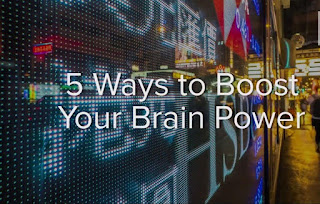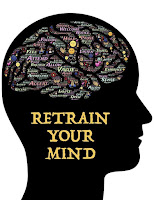Mind
Strengthening
“Spiritual
and Mental Health”
 In the past couple of decades, a holistic approach to
understanding individuals have paved the way for research to explore
spirituality as one dimension of the cognitive, emotional, behavioral,
interpersonal and psychological facets that make up a human being. Although a
the connection between spirituality and mental health has been recognized in
Eastern ideologies (such as Buddhism) for many centuries10, the historical
split between religion and science in the West has resulted in a relatively
recent interest in the field.
In the past couple of decades, a holistic approach to
understanding individuals have paved the way for research to explore
spirituality as one dimension of the cognitive, emotional, behavioral,
interpersonal and psychological facets that make up a human being. Although a
the connection between spirituality and mental health has been recognized in
Eastern ideologies (such as Buddhism) for many centuries10, the historical
split between religion and science in the West has resulted in a relatively
recent interest in the field. This interest in the relationship between spirituality and
mental health is being explored in a number of ways. Researchers in a range of
disciplines, including psychology, psychiatry, theology, nursing and
gerontology, are exploring the connections between various elements of these
two areas of human existence11-17. Service users and survivors as well as those
in various faith communities are also adding their voices to the evidence base
and identifying the ways in which spirituality can contribute to mental health
and wellbeing, mental illness and recovery18-20.
This interest in the relationship between spirituality and
mental health is being explored in a number of ways. Researchers in a range of
disciplines, including psychology, psychiatry, theology, nursing and
gerontology, are exploring the connections between various elements of these
two areas of human existence11-17. Service users and survivors as well as those
in various faith communities are also adding their voices to the evidence base
and identifying the ways in which spirituality can contribute to mental health
and wellbeing, mental illness and recovery18-20.
Inevitably, though this report is limited by the nature of
the research so far on spirituality and mental health. It, therefore, reflects to
some extent the content and tone of a research base which is largely
quantitative, largely related to the Christian religion, and almost entirely
based on the assumption that what is at work is a mediating factor between
spirituality and mental health rather than a direct spiritual phenomenon. As
such the research tends to reduce spiritual experience to a set of behavioral
or social indicators.
Ways To Strengthen Your Mind
We all know that strengthening our mind can do wonders and will
also help us to achieve our goals in life. Many of us also seek to get peace in
our life but never get it due to any reason.
Controlling the mind can be a very difficult task. It takes a good amount of time, patience, awareness and skill to know your mind, let alone to control and improve it.
But let's give it a try and let me tell you what I know. The mind is having different parts:
0. Subconscious
1. Concentration/Focus
2. Awareness
3. Memory
4. Imagination
5. Emotions
6. Conscience/Wisdom
7. Fragmentation
8. Buffers
9. Rest of Mind (Things I forgot to write)
Controlling the mind can be a very difficult task. It takes a good amount of time, patience, awareness and skill to know your mind, let alone to control and improve it.
But let's give it a try and let me tell you what I know. The mind is having different parts:
0. Subconscious
1. Concentration/Focus
2. Awareness
3. Memory
4. Imagination
5. Emotions
6. Conscience/Wisdom
7. Fragmentation
8. Buffers
9. Rest of Mind (Things I forgot to write)
Even though the brain is an organ, rather than a muscle, you
can still give your brain a workout. Just as with a muscle, repetitive tasks
can dull or even damage your mental acuity, while new challenges and activities
can strengthen your brain and even make you measurably smarter.
·
Challenging Your Brain
It turns out that the human brain has a great potential for something called neuronal plasticity, or in other words, being highly malleable. It appears that challenging our brains — for example, by learning a new skill — leads to actual changes in the adult brain.
Being socially engaged may help fend off social isolation and
depression, both of which have been linked with a decline in cognitive
functioning later in life. Having good social support also reduces stress,
another thing that we know has a negative impact on thinking skills.
·
Enjoying Yourself
 ·
·
Hang out with your friends. That’s right. You can strengthen your mind simply by hanging out with other humans and enjoying each other’s company.
In fact, our brain’s health requires that we have a strong social support system. Believe it or not: the more social your life, the slower your memory will decline with age.
Allow yourself to laugh. If you realize you’ve been taking life a bit too seriously, think about something you’ve done recently that you could have handled more calmly. Here’s the kicker: laugh at yourself for being so darn high-strung sometimes! Forcing yourself to confront ways in which you sometimes behave humorously without realizing it will also help you start to change those behaviors.
Staying Healthy
Exercise improves absolutely everything. Not only will you feel better if you get regular exercise, but exercise improves circulation throughout your body, moving protein and nutrients to your brain. Strong body, strong mind!
Get Socialize

Studies suggest that people who are socially active are also at a lower risk of developing dementia and Alzheimer's disease. Socializing tends to engage multiple areas of the brain and many social activities also include physical elements, such as playing a sport, that are also beneficial to your mind.
Some ideas for staying socially engaged to include signing up for volunteer opportunities in your community, joining a club, signing up for a local walking group, and staying in close touch with your friends and family.
Dealing with Stress
It may seem like there’s nothing you can do about stress. The bills won’t stop coming, there will never be more hours in the day, and your work and family responsibilities will always be demanding.
But you have a lot more control than you might think. In fact, the simple realization that you’re in control of your life is the foundation of managing stress. Stress management is all about taking charge: of your lifestyle, thoughts, emotions, and the way you deal with problems.
No matter how stressful your life seems, there are steps you can take to relieve the pressure and regain control.




Comments
Post a Comment